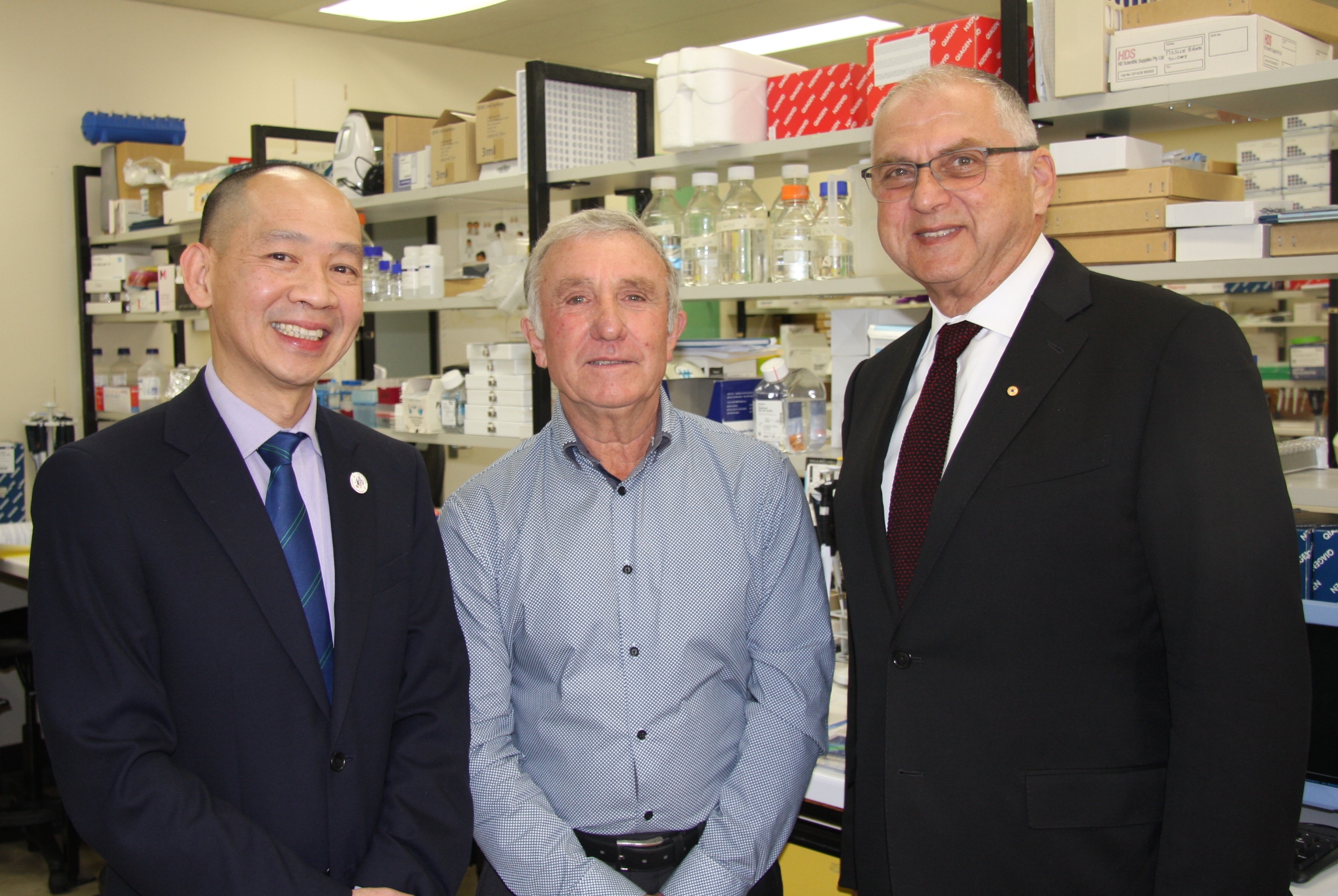A major new research effort will focus on detecting lung cancer sooner to help reduce the toll from Australia’s deadliest cancer.
Queensland Minister for Health Cameron Dick has launched the Australian Cancer Research Foundation (ACRF) Centre for Lung Cancer Early Detection which will be partnered by The University of Queensland Thoracic Research Centre at The Prince Charles Hospital (TPCH).
ACRF has provided $1 million to equip the centre with the latest technology needed to advance lung cancer diagnostics.
Director, UQ Thoracic Research Centre at TPCH, Professor Kwun Fong said the centre’s focus will be on identifying better ways to screen for lung cancer and improving methods for diagnosing suspected cases.
“We will use the latest technology to identify markers for lung cancer that might be present in the breath, blood or lung fluids at a very early stage of the disease,” Professor Fong said.
“These markers could form the basis for new lung cancer tests to allow earlier diagnosis and treatment.”

Professor Fong said the centre will bring together the skills from several highly skilled researchers and scientists, including collaborators at CSIRO, who will assist by analysing breath samples.
“They will be looking for very small traces of lung cancer cells to identify the disease long before our current tests can,” Professor Fong said.
“Most importantly we will also be looking at how to take research to the clinic as quickly as possible to ensure that our patients see the benefits of earlier diagnosis.
“Due to the clinical focus of the research, the team will be able to translate findings directly into daily clinical practice.”
ACRF Chief Executive Dr Ian Brown said lung cancer remains the leading cause of death from cancer in Australia, for both men and women, with less than 15 per cent of patients surviving for five years.
“The low survival rate is mainly due to the diagnosis usually occurring at an advanced stage of the cancer, when there are few effective treatment options available.” Dr Brown said.
“Lung cancer can be more effectively treated if diagnosed in its earliest stage, and that is why ACRF felt it was vitally important to support this research.”
A robotic system for handling multiple specimens and equipment to look for genetic markers has been installed at the centre’s laboratories at The Prince Charles Hospital.
Research will be conducted over the next five years.
Health authorities estimate that more than 9000 Australians will die from lung cancer in 2017, and more than 12,400 new cases will be diagnosed this year.
Media: Kim Lyell, k.lyell@uq.edu.au, 0427 530647.



